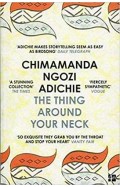- Home
- Books
- Categories
- Non Fiction
- History
- Colonial Effects - The Making of National Identity in Jordan
Colonial Effects - The Making of National Identity in Jordan
By: Joseph Massad
-
Rs 9,445.50
- Rs 10,495.00
- 10%
You save Rs 1,049.50.
Due to constant currency fluctuation, prices are subject to change with or without notice.
Colonial Effects - The Making of National Identity in Jordan
By: Joseph Massad
Rs 9,445.50 Rs 10,495.00 Ex Tax :Rs 9,445.50
Zubin Mehta: A Musical Journey (An Authorized Biography)
By: VOID - Bakhtiar K. Dadabhoy
Rs 892.50 Rs 1,050.00 Ex Tax :Rs 892.50
The Facebook Effect: The Real Inside Story of Mark Zuckerberg and the Worlds Fastest Growing Company: The Inside Story of the Company That is Connecting the World
By: David Kirkpatrick
Rs 3,195.00 Rs 3,550.00 Ex Tax :Rs 3,195.00
The Hermitage Collections
By: Oleg Yakovlevich Neverov
Rs 30,415.50 Rs 33,795.00 Ex Tax :Rs 30,415.50
No similar books from this author available at the moment.
The Thing Around Your Neck - Paperback
By: Chimamanda Ngozi Adichie
Rs 1,795.50 Rs 1,995.00 Ex Tax :Rs 1,795.50
Watch Out! : The World's Most Dangerous Creatures
By: Ginjer L. Clarke
Rs 276.25 Rs 325.00 Ex Tax :Rs 276.25
Zubin Mehta: A Musical Journey (An Authorized Biography)
By: VOID - Bakhtiar K. Dadabhoy
Rs 892.50 Rs 1,050.00 Ex Tax :Rs 892.50
Colonial Effects - The Making of National Identity in Jordan
By: Joseph Massad
Rs 9,445.50 Rs 10,495.00 Ex Tax :Rs 9,445.50














-120x187.jpg?q6)


















